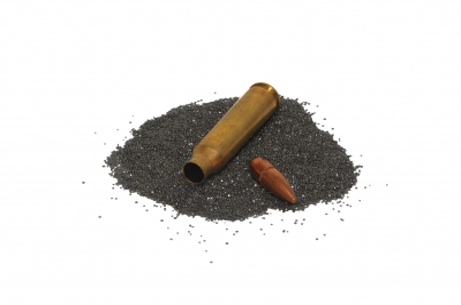
Serving officer Tom Barron has published research on the importance of analysing the structure and behaviour of particular armies to understand the conditions that lead to military coups.
The structure, functions and behaviour of the military are key factors in understanding the development of conditions that allow for military seizures of power, but often receive little attention, according to a new study by a Gates Cambridge Alumnus and serving military officer.
In an article entitled The Soldier and the State in the Congo Crisis in the current issue of the journal African Security, Tom Barron discusses Joseph Mobutu’s rise to power in the Congo during the Congo Crisis by analysing the history of the Congolese military, first from its inception as the Force Publique in 1888 then as the Armée National Congolais (ANC) between independence and Mobutu’s seizure of power in 1965.
He argues that Mobutu ascended to power by exploiting his leadership position within a fragmented, ill-disciplined military, which was born overnight out of a fragmented, corrupt colonial force designed to exploit and repress its own populace.
The article is based on Tom’s research at the University of Cambridge, where he did an MPhil in African Studies [2012].
He says he was interested in examining political violence across the African continent, particularly focusing on the prevalence of politically powerful militaries and coups. He focused on the Congo, in part because of its particularly extreme history and ongoing experience of political violence and coups.
He says: “What I found was that since shortly after most African nations gained independence, the body of literature that examines civil-military relations and political violence in Africa has largely ignored the study of militaries and their history as contributing factors to violence, political instability, and coups, viewing them largely in terms of other strong political, social, and economic drivers. By examining the history of the Congolese National Army as a colonial force, and its role during the Congo Crisis (which was framed by Joseph Mobutu’s coups in 1960 and again in 1965), my research found that the Congolese military’s structure, operations, and history were strong contributing factors to Mobutu’s political takeovers.”
He says his research has shown that militaries must not be assumed to be monolithic or to have uniform qualities. They need to be studied in their own context, and doing so can aid in the understanding and help in the resolution of political violence. He says: “Both when researching the causes of political instability and violence, and attempting to find practical solutions to mitigate their devastating effects, one can learn a great deal from examining militaries as active contributors to these problems – as one would with other political and social institutions.”
Tom is an active-duty infantry officer in the US Army and was able to go to Cambridge for a year while still on active service. He returned to an operational unit immediately after Cambridge and was deployed in early 2012 to Kandahar Province, Afghanistan. His unit’s work included supporting local development projects, resolving land disputes and public sanitation problems, local conflict resolution and diplomacy, training the Afghan military and police forces, and combat-focused security operations. His unit is currently based in North Carolina.
Picture credit: Boaz Yiftach and www.freedigitalphotos.net












